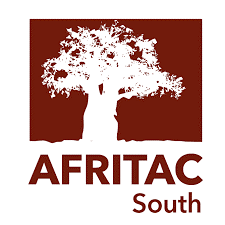Posted by Robert Clifton, Avril Halstead and Tjeerd Tim[1]
The IMF’s Regional Technical Assistance Center for Southern Africa, AFRITAC South (AFS), recently organized a customized workshop on strengthening the oversight and monitoring of state-owned enterprises (SOEs) for four countries in the region.[2] The workshop brought together technical staff of SOE oversight units from Botswana, Namibia, Seychelles, and South Africa for both knowledge development and peer‐to‐peer exchange of ideas and experiences.
Over the last two years, AFS has assisted Botswana and Seychelles in strengthening their SOE oversight capacity. It has also assisted Namibia and South Africa in their efforts to improve fiscal risk management.
- In Botswana, the Enterprise Development Unit, a unit for the financial oversight of SOEs, has been assisted in developing an Excel-based financial performance and fiscal risk analysis tool. Populated with data from audited financial statements of SOEs and covering financial flows between government and SOEs and among SOEs, the tool allows for swift analysis of the entire SOE-sector, sub-sectors like utilities or transport, and individual enterprises.
- In Seychelles, AFS supported the government to develop their first comprehensive Fiscal Risk Statement (click), and to produce an annual report analyzing the fiscal risks of SOEs (click) using an Excel-based financial monitoring tool. This tool includes financial and fiscal data from 2009 to the present, allowing for in-depth financial and fiscal risk analysis at various stages of the macro-fiscal and budgetary process. It has helped generate momentum for strengthening the SOE framework.
- In Namibia, with the support of the IMF’s Fiscal Affairs Department (FAD) and AFS, the authorities produced an internal fiscal risk statement to inform the preparation of the 2020 budget.
- South Africa has rich experience with fiscal risk management and annually publishes a fiscal risk statement in the Medium-term Budget Policy Statement (click).
However, quantifying and monitoring the fiscal risks of SOEs in the four countries continues to be challenging. Risks may arise from a wide range of sources such as bail outs, subsidies, dividend policies, tax exemptions, quasi-fiscal activities, contingent liabilities, payment arrears, high levels of indebtedness and financial losses. The workshop provided an opportunity for staff of SOEs and the fiscal risks they create. The workshop covered the following main topics:
- The rationale and challenges of improving the financial oversight of SOEs;
- The role of SOE oversight units in improving the financial performance of SOEs and managing the associated fiscal risks, the institutional and organizational structure of the units, and their engagement with civil society and other stakeholders;
- The capabilities and tools that the units require to carry out their functions efficiently and effectively; and
- A simulation exercise on SOE financial analysis using actual data on the financial performance of state-owned postal services between 2018 and 2019.
The participants welcomed the workshop which enabled them to view their work within the wider context of fiscal risk management. They exchanged experiences on alternative means of increasing the effectiveness of SOE financial oversight, including the need for stakeholder management and engagement. They identified and discussed challenges to balance financial accountability and managerial autonomy, and how sometimes, governments fail to derive maximum value from SOEs. Participants would welcome further technical support from FAD/AFS on developing and enhancing their oversight tools as well as continued cross-country engagement.
AFS will continue to support such initiatives and provide targeted technical assistance for strengthening the role of SOE oversight units and fiscal risk monitoring in the region.
[1] Robert Clifton is the Resident Advisor for PFM at AFS. Avril Halstead and Tjeerd Tim are both short-term PFM experts.
[2] The workshop was held on which was held in Gaborone, Botswana on December 9-13, 2019.
Note: The posts on the IMF PFM Blog should not be reported as representing the views of the IMF. The views expressed are those of the authors and do not necessarily represent those of the IMF or IMF policy.






